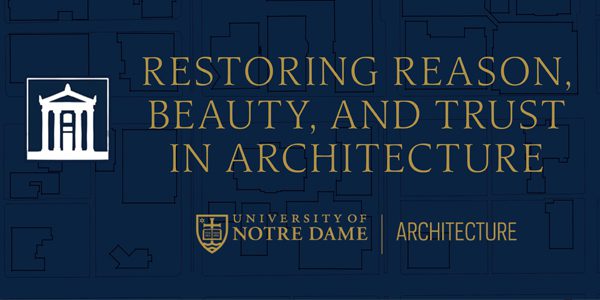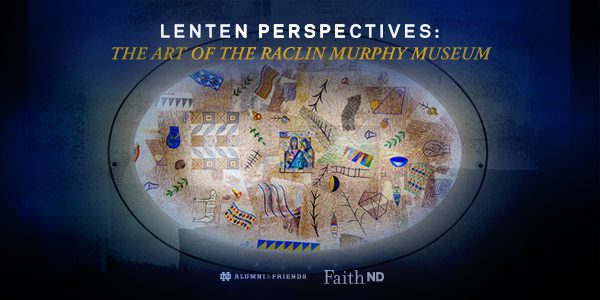Kylemore Book Club: Rugby and the West of Ireland
Subscribe to the ThinkND podcast on Apple, Spotify, or Google.
Featured Speakers:
- Eamonn Molloy, Education and Learning, Connacht Rugby and the Irish Rugby Football Union
- Justin Hickey, Program Director, Notre Dame Rugby
- Lisa Caulfield, Director of the Global Centre at Kylemore
The first virtual event of To Hell or to Connacht: Stories of Irish Resilience featured a discussion around the history of the phrase “To Hell or to Connacht,” born out of the Cromwellian era, as well as a basic introduction to rugby and rugby values both in Ireland and the United States. future-oriented leadership and innovation. This event was moderated by Lisa Caulfield, Director of the Global Centre at Kylemore, and featured Eamonn Molloy (Coach Development Manager at Connacht Rugby), Justin Hickey (Director of Rugby – Head Coach at Notre Dame), and special guest Rory Rapple, Associate Professor of History at Notre Dame. The goal of this session was to explore what is it about the West of Ireland that is so unique and enigmatic both through historical events and through the lens of sport – rugby in particular. The background information explained through the pre-recorded videos and the live session will help build a foundation for the remaining weeks of the series.
The event began with Professor Rapple expanding on his pre-recorded videos by providing more of an in-depth look at what it meant to be a parliamentarian in the mid-17th century. Rapple discusses the interaction between these parliamentarians and what happens relative to the Irish land-holders at the time. The English parliamentarians have their own agenda, Rapple explains, which was often religiously-motivated, leading them to turn to “put down what they see as insurrection in Ireland”. Needing to find ways to pay for their armies, they take over land owned by Irish-Catholics as collateral, leading to the forced movement to Connacht from the East of the country.
Eamonn Molloy of Connacht Rugby expanded on the forced migration pattern in the 17th century and how it has influenced the mindset of the West today. Molloy discussed how Connacht as a province, more so than the other three Irish provinces, has felt “hard-done by” which was a feeling carried into the sport of rugby both mentally and also as a consequence of how Connacht was treated in comparison to the other provinces with regards to funding and professional development. This feeling of being hard-done by crosses over into politics and economic development as well, according to Molloy. Molloy went on to discuss the “aspects of rugby” that drew him towards it, especially the comradery aspect and the different levels of playing opportunities in Connacht and Ireland. He went on to discuss the importance of keeping local roots within the team, both in relation to the roster and with regards to outreach initiatives or team trips.
Lastly, Justin Hickey discussed how rugby has grown in the United States and the direction it’s headed in. He states that 5 or 10 years ago, rugby was the “fastest growing sport” in the United States. Since then, a lot more of a consistent growth rate has been accomplished both at the youth and development levels as well as with the elite level. Hickey mentioned the importance of women’s rugby as an “emerging sport” and how Rugby 7s has played into the success of the professional game. Hickey touches upon the imbalance of men’s vs women’s teams, but states that with the NCAA initiative we will see a balance out in numbers.
This event concluded with a short question and answer session and then a breakout session for viewers to meet and further discuss the content with fellow book club participants.
- “If we are talking about rugby as well, what we are talking about when we look at somebody like Oliver Cromwell is we are looking at someone who is a great cavalry officer, but he’s not good at everything” (Rory Rapple, 14:17)
- “The dispossession of land in Ireland and the movement of all these Catholic landowners to Connacht is in many respects collateral damage for a pay dispute in England” (Rapple, 20:41)
- “At that point, as Rory eluded to, there’d be a feeling in Connacht of being hard-done by, or being disadvantaged, or not getting a fair slice of the cake relative to the rest of the country” (Eamonn Molloy, 28:28)
- “When the game went professional, Connacht was seen as a development province. So the other three provinces (Ulster, Leinster, and Munster) were funded fully by the IRFU […] and Connacht was given half the budget of the others” (Molloy, 29:09)
- “You would have a tendency of players coming here with something to prove” (Molloy, 30:31)
- “It’s much more than just a sport; you’re part of a group that share values together” (Molloy, 32:35)
- “As Rory speaks about, you have an embedded belief and one of the things when we were creating our new vision and strategy [was that] resilience kept popping up in relation to Connacht” (Molloy, 36:08)
- “It’s encoded in any statement of complaint or lamentation or whatever, the idea that [it is] a claim to be heard” (Rapple, 1:03:45)
- “I think that’s very much implicit in the Irish literary corpus, certainly from this dispossession on, is that we are tremendously proud people – we have incurred this cost and the benefit that eventually comes from it has to be immense” (Rapple, 1:05:24)
Related Content
How Cities Speak To Us
Professor Emily Talen joins the School of Architecture to share her work at The Urbanism Lab and its focal point at the University of Chicago for the study of the built...
View EventThe Astounding Reversal
Fr. Kevin Grove C.S.C. ’09 M.Div., Holy Cross priest, assistant professor in the Department of Theology, priest in residence at Dunne Hall here at the University of Notre Dame...
View EventFinality of the Crucifixion
Robin Jensen, Patrick O’Brien Professor of Theology, director of Notre Dame’s Master of Theological Studies, and teacher of the history of Christian art, contemplates...
View Event

